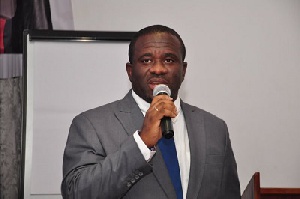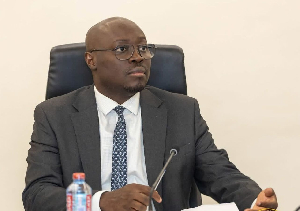The Director for Tigo Business, Stephen Essien, has called on Small and Medium Enterprises (SMEs) in Ghana to embrace technology and use it to grow their business.
Speaking at an SME Clinic organised by Union Savings and Loans in Accra, Stephen Essien, encouraged the small business owners to look into connectivity, business applications, devices, security, payment platforms and solutions and service support as they are some of the crucial elements that will make them more efficient and drive innovation.
He mentioned Tigo business had invested in various products and services in this regard to support SMEs.
He said several studies indicated that mobile technologies are the leading cause of innovation in most SME businesses.
“We know from our internal studies that SMEs need access to the same technology as the big players. This will help them stay competitive and offer a more flexible and responsive service that meet and anticipates customer needs,” he said.
Speaking to the clinic’s theme ‘Managing your business for success in an Election year’ an Economic Analyst, Toma Imirhe, told the participants that from historical trends, consumer demand for goods and services are comparatively low in a Presidential and Parliamentary election year and this is due to tight liquidity. He however expected liquidity to pick up in the run-up to the elections.
Unless there are further falls in the global market prices of Ghana’s primary export commodities, Mr. Toma Imirhe, expected the exchange rates to remain stable until the third quarter of the year. He however expected the cedi to depreciate in the last few months of the year due to increase money in circulation and speculative demand for foreign exchange.
The SME clinic brought together over 100 SMEs from Accra and it was aimed at building their capacity on record keeping and understanding macro-economic issues.
Business News of Tuesday, 15 March 2016
Source: tigo ghana
Tigo encourages use of technology to drive innovation in SMEs
Entertainment












